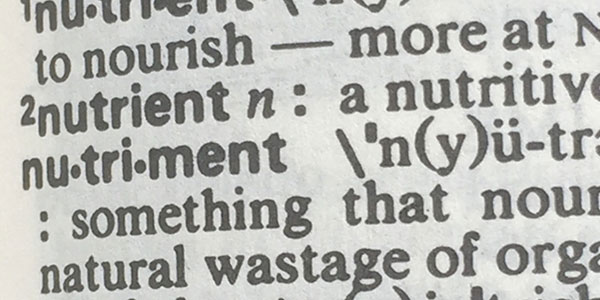As any marketer knows, semantics matter. Words greatly influence purchasing decisions based on common perceptions of what is “good” and what is “bad.” These perceptions are shaped by research studies, information from government agencies, and well strategized public relations campaigns.
In his article entitled “No Food is healthy. Not even kale.” Michael Ruhlman questions the practice of allowing food companies, advertisers and researchers to shape the way we think about food. He states that “examples of food confusion and misinformation abound,” calling the word “healthy” the “most dangerous term of all.”
Ruhlman’s view is supported by commentary from Roxanne Sukol, preventative medicine specialist at the Cleveland Clinic and medical director of its Wellness Enterprise: “Healthy is a bankrupt word. Our food isn’t healthy. We are healthy. Our food is nutritious…Words are the key to giving people the tools they need to figure out what to eat. Everyone’s so confused.”
On the surface, these discrepancies may seem like splitting hairs. But consider things like the role of the subconscious mind in directing eating behaviors and the significance becomes more evident. Recent findings from the Journal of the Association for Consumer Research suggest that people tend to overeat and feel less full when they are consuming foods labeled “healthy.” This is thought to, ironically, be a contributing factor to high obesity rates.
As Ruhlman aptly points out, too much of any one type of food (like kale) will eventually have a negative impact on your health. The same goes for eating too much protein or too little fat—not to mention the practice of getting nutrients from processed, fortified foods rather than from whole foods.
We couldn’t agree more. One takeaway from both the article and study referenced above is that conscious eating can help you make better decisions. By focusing on wholesome foods that contain the nutrients your body needs—and eating them in the correct portions—it is possible to establish new perceptions and eating behaviors that will support your wellbeing.

